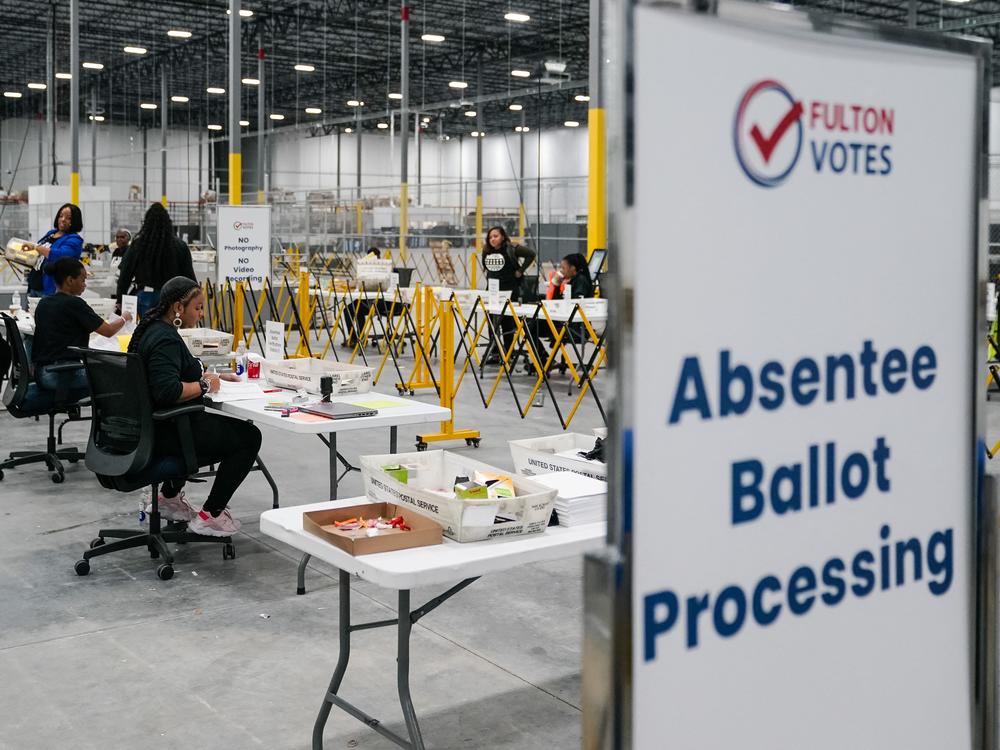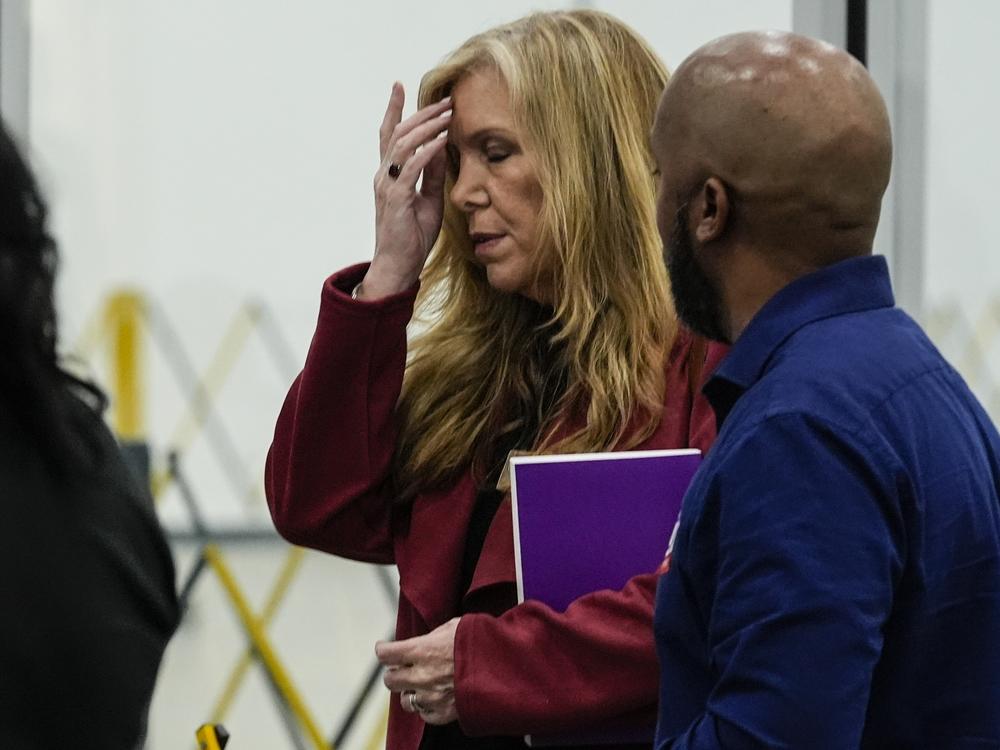Section Branding
Header Content
Georgia counties certify the election, as fraud claims dissipate after Trump win
Primary Content
ATLANTA — Every county in Georgia has certified the results of the 2024 general election, a notable step after some Republican local election board members earlier this year declined to certify other results.
Typically an uncontroversial procedural move, disputes over election certification cropped up in several states in 2020, when supporters of then-President Donald Trump amplified baseless claims of widespread fraud.
The 2020 examples led to worries about what would happen following the 2024 election, with Trump again on the ballot, even as election officials and experts maintained that certification is mandatory and legal guardrails would minimize disruptions.
But with Trump's win in Georgia and in every swing state across the country this year, claims about widespread election fraud have largely dissipated — as have concerns about certification.
A particular focus in Georgia
Each state has its own deadlines for certification of election results at the local and state levels. Georgia's local deadline is among the earliest.
Ahead of the 2024 election, battles over certification were most pronounced in Georgia, where Republicans on the State Election Board approved rules that seemingly allowed local election board members to vote against certifying election results.
A judge later invalidated the rules, declaring them "illegal, unconstitutional and void." Georgia law says local election boards must certify election results by 5 p.m. on Nov. 12.
But that did not stop some local election board members from pressing the courts to rule they have discretion to vote against certifying the results.
One local Republican board member, Julie Adams of Fulton County, continued to push ahead in her own lawsuit, even after a judge ruled her certification duties mandatory, not discretionary.
Adams had declined to certify election results on several occasions, saying she had not been able to independently verify the integrity of the results. Following the November election that saw Trump and others win in Georgia, she voted to certify those results, though she expressed reservations.
"I think it's absolutely ridiculous to have a court order saying I have to vote yes," Adams said Tuesday.
In Metro Atlanta's most populous counties — DeKalb, Fulton, Cobb and Gwinnett — at least one local Republican board member abstained or voted against certifying results from elections earlier in the year. After the November election, all four boards certified the results unanimously.
Georgia Republican Secretary of State Brad Raffensperger will next complete the state certification before presidential electors meet in December.
"Election integrity doesn't happen just in the 11th hour, as some fringe activists claimed to try to do this past month. It is planned years in advance," Raffensperger told reporters on Tuesday morning. "I believe every county will be in good shape and have it done."
While concerns about irregularities and certification have fallen off, they have not disappeared entirely. Some local board members pressed election officials for clarity about minor discrepancies in the results before voting to certify.
A handful of Republicans, like Fulton County board member Michael Heekin, are now calling on the state legislature to empower local election board members with the discretion to vote against certifying results in future elections.
And some activists have signaled they will continue to raise concerns about election administration, like criticism of Georgia's voting machines and voter list maintenance.
"It's completely different"
But for local voting officials who were preparing to be in the eye of the storm for weeks on end after voting finished, the relative calm has felt like a seismic shift compared to 2020.
"It's completely different," said Lisa Tollefson, county clerk for Rock County, Wis. "This time four years ago, I was getting nasty phone calls constantly in my office and we had police protection for a while."
Her county board of canvassers met Monday to verify the general election results. At a similar meeting in 2020, there were a dozen or more observers, Tollefson said.
This year: "I had one observer," she said. "That's it."
Lisa Posthumus Lyons, a clerk in Kent County, Mich., said media attention on the administration of elections also died down almost immediately after Michigan was called for Trump.
"All eyes were on us, and the second we hit midnight almost, it was like they were going to turn into a pumpkin or something and they were gone," Lyons said. "It's not just that it's less tense, but it just seems less interesting to others."
NPR's Miles Parks contributed reporting.


